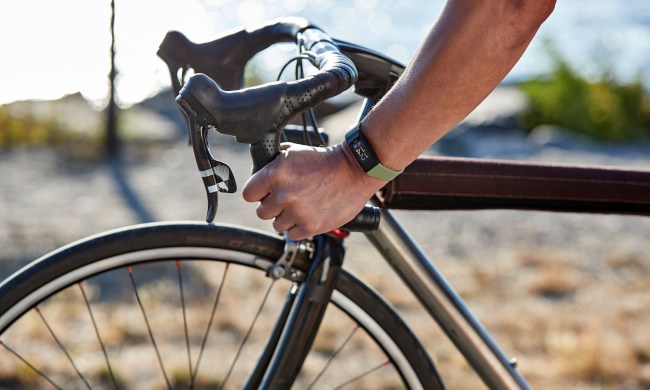As it often does, Amazon entered a new product category with no warning today. Its new product is called the Amazon Halo, and it’s a fitness band that promises A.I.-enabled features and is bought via an ongoing a subscription rather than an upfront purchase.
Considering that nobody’s used — or even touched — an Amazon Halo Amazon Halo
There’s been the Echo Loop smart ring Echo Frames smart lasses Echo Buds wireless earbuds
Thankfully, it seems as though the group inside Amazon that’s handling the Halo is quite a bit more invested in its success than these niche and one-off wearable efforts of the past. So there is some hope to be had there. Amazon made specific hires from the health world to make sure it got the details right — and the device sure has a long list of health features on offer.
And it wouldn’t be an Amazon product without leaning on artificial intelligence (A.I.) and machine learning, and there’s plenty of that here.
With an upload of a set of (minimally clothed) photos of yourself, Amazon claims it can do body fat analysis to more accurately track your health and fitness. While it’s true that body fat percentage is a much more accurate representation of physical fitness than a body mass index (BMI) chart, and that body fat scans are expensive, I’m hesitant to believe Amazon’s A.I. and machine learning can give you an accurate read from a handful of photos. I also wonder if anyone at Amazon considered the past failure of the Amazon Echo Look, which couldn’t provide a compelling clothing picker, let alone health insights. There will once again be privacy concerns here, but I believe Amazon when it says it’s keeping this data safe and private to you.
Is it a good deal?
Another A.I. feature is a voice tone analysis that purports to be able to tell you how your voice is reflecting your emotional state, in hopes of reducing stress and providing insight into how you can change how you speak to others to improve relationships and interactions. This frankly seems like a wild claim. Every “stress” monitor I’ve ever used — on Wear OS watches, the Apple Watch, Garmin watches, and Samsung Galaxy watches — has been woefully inaccurate. I have little faith that Amazon’s A.I. analysis of my voice tones can do any better, but if the company can pull something like this off, it would be truly revolutionary. (Sadly, Amazon notes that tone analysis drops the Halo’s battery life from 7 days down to just 2 days. Yikes.)
All of Halo’s other health tracking and insights seem relatively standard. There are workouts and activity challenges, breakdowns of sleep data, and data-based suggestions on how you can lead a healthier life. These are things that we just can’t have any idea about in term of their effectiveness until we actually wear one for a while.
On that point, let’s talk about pricing and competition. Amazon’s getting a ton of attention for launching the Halo as a subscription service, rather than an upfront purchase — not unlike the Whoop fitness tracker. In the early access period you pay $65, which gets you the Halo and 6 months of service. But the catch is that you need to keep paying at $4 per month — that’s a bit over $50 per year when you include tax. If you buy after the early access discount is over, you’re looking at $99 for the tracker and 6 months of service, so your first year costs you about $125.
Amazon has some amazing features, but we should be hesitant to believe they’ll work as claimed.
Amazon is obviously going after casual fitness trackers, like the just-updated Fitbit Inspire 2, but with its current subscription model, the Halo doesn’t really come out looking like a good deal. An Inspire 2 is just $99
If you choose to cancel your subscription, Amazon says “nonmembers retain access to basic sleep time, heart rate, and step tracking.” While it’s good that the device doesn’t just brick itself, that’s not great. I understand paying extra for features like body composition and voice tone analysis, but turning off all activity tracking beyond steps is really rough.
The best thing the Amazon Halo has going for it is a strong brand name and a low introductory price, so there’s little commitment involved if you just want to give it a try — and I’m sure Amazon’s banking on people realizing that. For $65, it’s worth taking a shot for 6 months if you like the idea of this minimalist fitness tracker and the potentially unique health insights. But I don’t believe Fitbit, Garmin, or Apple are worried about giving up ground in the fitness tracker space just yet.





